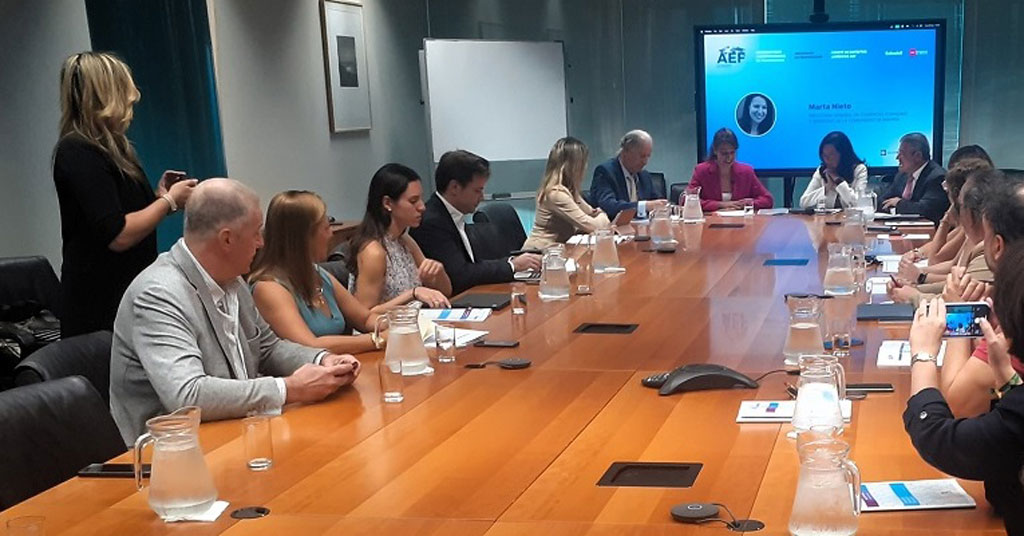Spain: Study Shows Franchise Litigation Has Stayed Very, Very Low

In Spain franchisees do not fight. That’s the finding of the seventh “Franchise Jurisprudence Observatory in Spain” (VII AEF Observatory). Prepared by the Committee of Legal Experts of the Spanish Franchise Association (Asociación Española de la Franquicia, or AEF), with the collaboration of Banco Sabadell, the report showed that the franchise system in Spain has a low degree of litigation, with an average rate of 0.09%.
When evaluating the results of this study, Luisa Masuet, President of the AEF, emphasized that “the figures and percentages reflected in this Observatory, prepared by the Committee of Legal Experts of the AEF, offer a real and objective vision of the low litigation that exists in the franchise system, with an average of only 0.09% in the 21 years analyzed, which dispels all doubts that may exist regarding conflicts between franchisors and franchisees, while demonstrating the maturity, solidity and self-regulation of this trade model, which is committed to settling possible disputes between both parties in an extrajudicial manner.”
The analysis of franchise litigation was expanded in this VII Observatory. It now includes the years from 2002 through 2022, in which a total of 850 sentences were issued: 831 in Provincial Courts, 18 in the Supreme Court, and one in the Court of Justice of the European Union. The two sectors that presented the greatest litigation were Hospitality/Restaurant, with a total of 63 procedures, and Fashion, with 56. These were followed by Beauty/Aesthetics, with 44 procedures; Transportation Services, with 39; and Financial Services, with 31 litigations.
The study indicated that nearly six in 10 (57.28%) of the procedures were initiated by the franchisor, with the average percentage of resolutions favorable to the franchisor at 66.90%.
In this sense, and taking into account the number of rulings registered in these 21 years, it was observed that “the degree of litigation in franchising matters is very low in relation to the number of establishments that operate under a franchise regime in all of Spain—a total of 77,246—so the average litigation rate remains at 0.09% as in previous years,” said Jordi Ruiz de Villa, President of the AEF Committee of Legal Experts.
This VII Observatory analyzed the main reasons for conflict between franchisors and franchisees. These can be segmented into six issues subject to prosecution:
1. Nullity of the franchise contract because of defects in the consent of the franchisee.
2. Nullity of the contract because of lack of object thereof.
3. Non-compliance by the franchisee because of non-payment of royalties.
4. Failure of the franchisee because of violation of the post-contractual non-competition clause.
5. Non-compliance by the franchisee because of the marketing of products or unauthorized suppliers.
6. Non-compliance by the franchisor for not providing technical assistance.
Sentences in Provincial Courts
This VII Observatory showed that the Provincial Courts ruled on 831 occasions on aspects related to the franchise contract, confirming a trend toward a decrease in resolutions starting in 2014, with a rebound in 2018 and 2019, a new decrease in 2020 and 2021, and an increase in 2022, in line with the sentences that were registered in the years before Covid-19.
Of these 831 sentences, 476 (57.28%) were initiated by the franchisor and 341 by franchisees (41.03%). Of the 831 rulings, 556 were resolved in favor of franchisees (66.90%) and 270 (32.49%) in favor of franchisees.
In the opinion of Eduardo Abadía, Executive Director of the AEF: “In the 21 years analyzed, the average number of litigations continued to remain at 0.09%, which is a clear indicator that franchising is a commercial formula with little conflict between franchisors and franchisees.”
“As the financial entity sponsoring this report, we want to congratulate the AEF and its Committee of Legal Experts for the magnificent work carried out, which has established itself as a very useful tool for the sector,” said Inmaculada Núñez, Director of Sabadell Franchises Banco Sabadell. “Twenty-seven years ago at Banco Sabadell, we realized that franchises needed preferential and specialized treatment, and we were not wrong. The numbers in this report speak for themselves.”
She continued, “We are proud to have opted for this business model from the beginning, to have signed agreements, to have a close relationship with most brands, and to have been able to help make the dreams of many entrepreneurs come true. We are convinced that we are going to continue supporting and advising franchisors and franchisees so that they can take the best financial solution.”
An important element that emerged in this is that the sector is increasingly mature. On the one hand, franchisors are more organized and prepared, and franchisees are chosen more among multi-franchisees or entrepreneurs with a superior and more professional resume.
Andrea Lazzari is CEO of the 06 Group. Based in Madrid, he is recognized as an expert in franchising and tourism in Spain. His three decades of knowledge and experience with national and international companies and brands includes positions in management, development, expansion, and marketing in several sectors of the economy. To learn more about franchising in Spain, contact him at +34 658771226 or [email protected].
For a video of the meeting (en Español), click here.
Share this Feature
Recommended Reading:
| ADVERTISE | SPONSORED CONTENT |
FRANCHISE TOPICS
- Multi-Unit Franchising
- Get Started in Franchising
- Franchise Growth
- Franchise Operations
- Open New Units
- Franchise Leadership
- Franchise Marketing
- Technology
- Franchise Law
- Franchise Awards
- Franchise Rankings
- Franchise Trends
- Franchise Development
- Featured Franchise Stories
| ADVERTISE | SPONSORED CONTENT |

$220,000
$300,000





 The multi-unit franchise opportunities listed above are not related to or endorsed by Multi-Unit Franchisee or Franchise Update Media Group. We are not engaged in, supporting, or endorsing any specific franchise, business opportunity, company or individual. No statement in this site is to be construed as a recommendation. We encourage prospective franchise buyers to perform extensive due diligence when considering a franchise opportunity.
The multi-unit franchise opportunities listed above are not related to or endorsed by Multi-Unit Franchisee or Franchise Update Media Group. We are not engaged in, supporting, or endorsing any specific franchise, business opportunity, company or individual. No statement in this site is to be construed as a recommendation. We encourage prospective franchise buyers to perform extensive due diligence when considering a franchise opportunity.